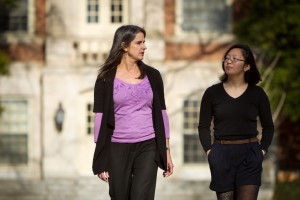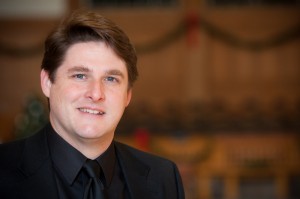Faculty and staff offer spiritual mentoring
Wake Forest has long been known for its commitment to educating the whole person, and now faculty and staff members are helping students explore their spiritual side.
A spiritual mentoring program that matches students with faculty and staff has been in place for several years, but is starting to take off this year.
“This is an opportunity for faculty and staff to walk side by side with a student on their spiritual journey while they’re here,” said associate chaplain Chris Towles, who is in charge of the program. “Some (students) are looking to become stronger in their faith. Some are looking to understand their calling in terms of more than just occupation, and some are just looking for someone who is willing to listen to them in a non-judgmental manner.”
Towles said he doesn’t know of any other university that has an organized faculty/staff spiritual mentoring program. About 20 students have already been matched with mentors, and about 40 faculty and staff members have volunteered.
Junior Lucy Lan, a chemistry major from Huntersville, N.C., has been matched with Associate Professor of Chemistry Rebecca Alexander.
“As a new believer who majors in chemistry, I feel that it would be extremely beneficial to receive mentoring from a Christian, science professor,” Lan said. “It is always reassuring to know that someone else has struggled to combine faith and empirical knowledge, and ultimately succeeded in understanding that the two are not mutually exclusive.”
Faculty and staff mentors are asked to meet with their student once a week or once every two weeks. It could be as simple as meeting for coffee in Starbucks, or walking through Reynolda Gardens, or going to religious services together.
Professor of English Melissa Jenkins (’01) has volunteered as a mentor for two years. “When I first heard about this program, I thought that it was a great idea,” she said. “It really seemed to exemplify what we mean by Pro Humanitate and ‘educating the whole student.’ There is a lot more going on in the minds and hearts of our students than can ever come out in a classroom. I’ve certainly learned as much from my mentees as they have learned from me.”
Towles meets with interested faculty and staff members and students to find the best “match” for a mentoring relationship. Students sometimes make specific requests — for a mentor in their own denomination for instance, or a student majoring in one of the sciences may request a professor in the sciences.
Mentors receive some training, but the most important qualification is to be a good listener, Towles said. “It’s not about being a guru or handing down the ‘right’ information. It’s about being an active listener and creating an atmosphere of trust for the student to share things that they may not feel comfortable sharing with others.”
The program isn’t intended to replace the counseling done by the Chaplain’s Office or campus ministers, but many students like the idea of sharing their spiritual life with a faculty or staff member, he said. “They like the idea of having a one-on-one relationship with someone who combines their spiritual life with their professional life,” Towles said.
Towles said he knows from his own college experience how valuable a spiritual mentor can be. “College is a time of defining who you are and asking questions. It’s important to have a person go through that with you, not to give you the answers, but to listen and help you get through it.”
Faculty, staff and students interested in the spiritual mentoring program should contact Towles at towlescj@wfu.edu.
— By Kerry M. King (’85), Office of Communications and External Relations
Categories: University Announcements


